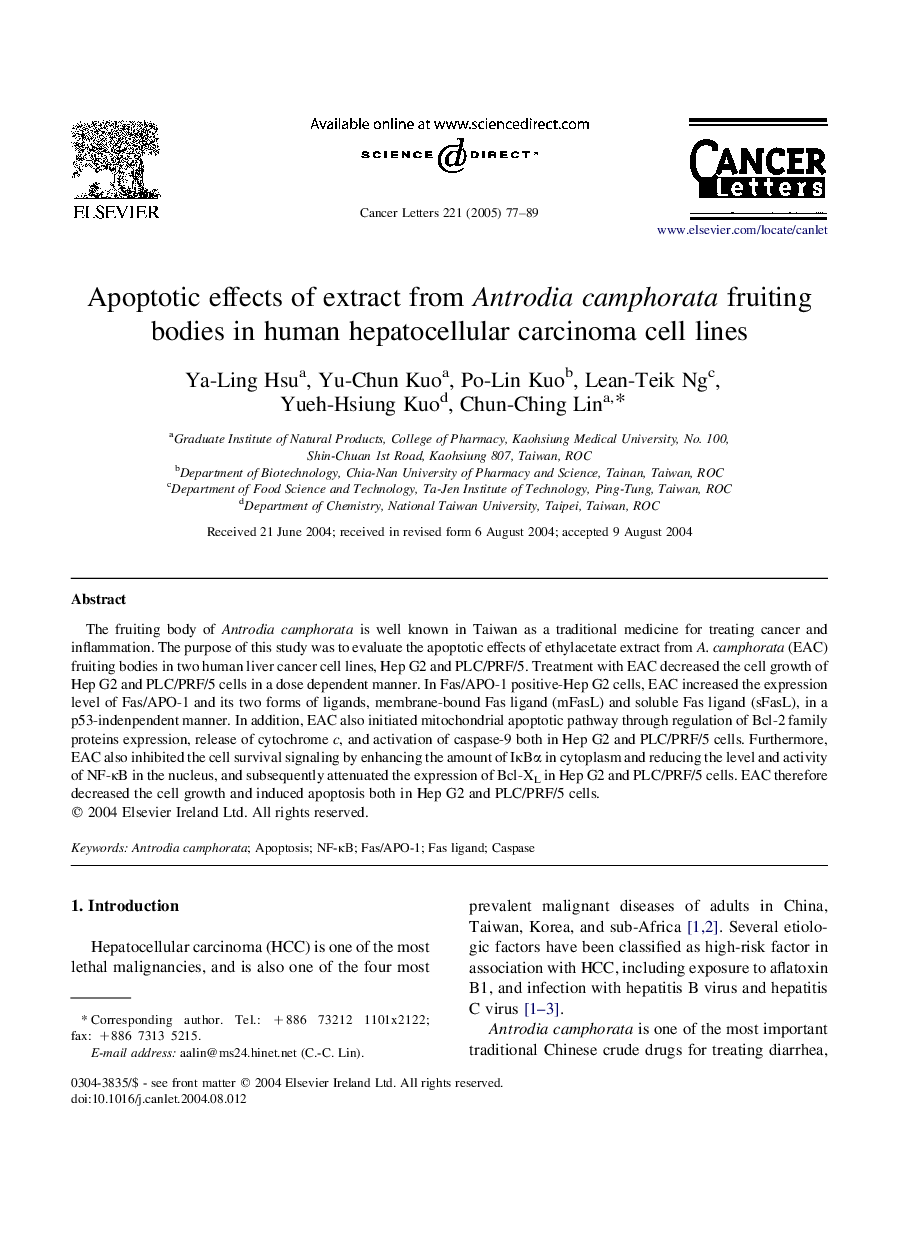| Article ID | Journal | Published Year | Pages | File Type |
|---|---|---|---|---|
| 10902510 | Cancer Letters | 2005 | 13 Pages |
Abstract
The fruiting body of Antrodia camphorata is well known in Taiwan as a traditional medicine for treating cancer and inflammation. The purpose of this study was to evaluate the apoptotic effects of ethylacetate extract from A. camphorata (EAC) fruiting bodies in two human liver cancer cell lines, Hep G2 and PLC/PRF/5. Treatment with EAC decreased the cell growth of Hep G2 and PLC/PRF/5 cells in a dose dependent manner. In Fas/APO-1 positive-Hep G2 cells, EAC increased the expression level of Fas/APO-1 and its two forms of ligands, membrane-bound Fas ligand (mFasL) and soluble Fas ligand (sFasL), in a p53-indenpendent manner. In addition, EAC also initiated mitochondrial apoptotic pathway through regulation of Bcl-2 family proteins expression, release of cytochrome c, and activation of caspase-9 both in Hep G2 and PLC/PRF/5 cells. Furthermore, EAC also inhibited the cell survival signaling by enhancing the amount of IκBα in cytoplasm and reducing the level and activity of NF-κB in the nucleus, and subsequently attenuated the expression of Bcl-XL in Hep G2 and PLC/PRF/5 cells. EAC therefore decreased the cell growth and induced apoptosis both in Hep G2 and PLC/PRF/5 cells.
Related Topics
Life Sciences
Biochemistry, Genetics and Molecular Biology
Cancer Research
Authors
Ya-Ling Hsu, Yu-Chun Kuo, Po-Lin Kuo, Lean-Teik Ng, Yueh-Hsiung Kuo, Chun-Ching Lin,
